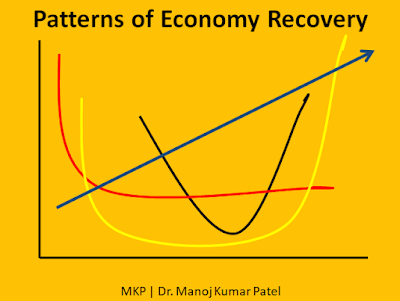Thematic Apperception in Science & Technology
PSYCHOLOGY AND SCIENCE & TECHNOLOGY ARE TWO OF THE DIAGRAMATICALLY OPPOSITE BRANCHES OF STUDIES. THESE TWO BRANCHES DO NOT SEEM TO MATCH IN THE REAL WORLD. BUT A STUDY OF THE LITERATURE CONFIRMS THAT PERCEPTION IS WELL INTERTWINED WITH SCIENCE & TECHNOLOGY. WE HAVE TRIED TO BRING THESE TOGETHER INTO A COMMON PLATFORM BY CITING SOME CASE STUDIES. THE RESULTS OBTAINED ARE INTERESTING AND USEFUL.
Both of the words “perception” and “apperception” are related to understanding and interpreting what one experiences. Perception is an interpretation of what one’s senses are saying whereas apperception is more about a conscious comprehension
Both the terms are related to mental processes and
psychology and have been interpreted through various well-designed methods like
assessment centers, questionnaire surveys, group discussions, group behaviors,
and social interactions. Social psychologists have carried out fewer
experiments by relating perceptions and apperceptions with biochemical
reactions taking place in human brains (when humans are involved as subjects)
to complete their studies.
Ground vibrations; for example; caused by an
excavation-intended-blast in mines disturb people residing in the vicinity of
the mines. When residents from these habitations complaint mining
administration about the adverse impacts of the vibrations on their dwelling,
structures (houses), physical and mental health, the mining authorities,
sometimes in the guise and pretexts of showing concerns, conduct scientific
experiments, collect and collate data, present interpreted data and try to
shirk their responsibilities towards the residents that vibrations resulting from
blasting is not the causes of problems. To cut the long story short, the
perceptions and apperceptions of the two viewers do not match. One of the
reasons for this mismatch is – while the dwellers are the sufferers the studies
(often limited in numbers) are carried out by involving professionals for who
production and productivity are of importance.
A survey of the literature showed that perception and
apperception are limited mostly to social sciences and psychology. The
correlations between apperception in the fields of technology and sciences are
less. At the same time when psychologists find out a correlation between an act
and reaction to the act, they prefer medicines (chemicals) to detach the
reaction from the action. For example, anxiety is perceived as a result of
mental stress, a noisy atmosphere, unhealthy human interactions, social
pressure, and unhealthy lifestyles. But the illness “anxiety” is treated by
chemicals along with counseling sessions and meditations. Memory improvement
medicines and techniques, treatments of autism and schizophrenia are achieved
by the application of chemicals present in medicines.
An observation of matter, material, behavior, debate,
generates spontaneous processes of action-reactions make us to perceive
perceptions. The mind's full observations of events, news, etc force us
sub-consciously or consciously to take sides either “for” it or “against” it.
It is almost impossible to remain “neutral and nonchalant. When we make “to
perceive” a practice, we subconsciously train our brain to store and analyze
all observations and quickly correlate acts with impending reactions. Say, for
example, a blasting engineer in the mines observes emission of black color
smoke whenever he conducts a blast by use of explosives of the manufacturer “A”
and emission of orange fumes when explosive of the manufacturer “B” is used. He
will use these observations and possibly perceive and make a mental calculation
to use a “mix of the explosives of A and B” with intent to nullify the
emissions of black and orange smoke. Irrespective of the outcome and
correctness of the action plan of the blasting engineer it can be said that
perceptions have made him act to rectify things.
Apperception thus, is, important to interpret
observation.
At the same time, here in this book, we are trying to
break the fundamental perception of the perception that it cannot be used in
technology. In this context the book – Surely You're Joking, Mr. Feynman is
worth remembering. The book is filled with descriptions of many experiences
that are light-hearted in tone, such as his fascination with safe-cracking,
studying various languages, participating with groups of people who share
different interests (such as biology or philosophy), and ventures into art and samba
music.
Another book titled
“Homo Deus” by Yuval Noah Harari is a must-read to understand how the
understanding of biochemical reactions inside the human body can encourage
present-day humans to achieve happiness, immortality, and God-like powers.
It is relevant to mention here that the use of neo
words like useless class, techno humanism, dataism, internet of all things (AKA
the Matrix) amongst a plethora of many other words. To bring in examples, on
and off, we shall quote from these two books.






Comments
Post a Comment